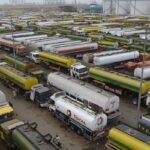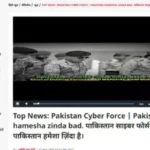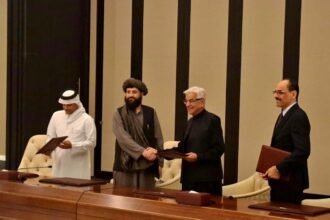ISLAMABAD: In a major policy shift aimed at tackling the undocumented economy, the federal government is expected to introduce a dual pricing system in the upcoming Budget 2025-26, setting different tax and transaction rates for cash and digital payments — starting with sectors like fuel.
According to informed sources, Finance Minister Muhammad Aurangzeb is likely to unveil the initiative during his budget speech on June 10, marking what officials describe as the boldest move yet in the government’s declared “war on cash.”
Lower Taxes for Salaried Class
The upcoming budget is also expected to provide marginal relief to the salaried class, with a proposed reduction of 1 to 1.5 percentage points in income tax rates. While symbolic, it aligns with the prime minister’s directive to offer some relief to overburdened taxpayers.
Dual Fuel Pricing
One of the most immediate implementations of the dual pricing model will likely appear at petrol pumps nationwide. All stations — from Chaman to Karachi and Khyber to Azad Kashmir — will be required to offer digital payment options, including QR codes, debit/credit cards, and mobile wallets.
For consumers paying digitally, the notified petroleum price will apply. Those opting for cash payments will be charged an additional Rs2–3 per litre, officials said.
“This is a regulated sector. It’s feasible to implement immediately and will also help track fuel supply chains and curb smuggling,” an official added.
Digital vs. Cash Taxation
In a broader move, all businesses — from importers and manufacturers to wholesalers and retailers — will be required to offer both cash and digital payment options. However, cash transactions will incur higher tax rates:
18% GST on digital payments.
20% GST (including a 2% surcharge) on cash transactions.
“If traders and customers still prefer cash despite higher costs, that’s their choice — but it will come at a financial premium,” said a tax official.
Push for Documentation
The move is designed to address the Federal Board of Revenue’s (FBR) longstanding failure to effectively document the retail and informal sectors. Officials admit that efforts over the past two decades have fallen short of expectations.
The government has already initiated consultation rounds with key stakeholders, including banks, the petroleum ministry, financial institutions, and consultants, to work out technical solutions.
Simple and cost-effective digital systems, such as QR codes, are expected to make digital adoption easier for small businesses.
Strategic Shift Towards Cashless Economy
The finance minister has repeatedly stressed the need for end-to-end digitisation and has cited countries like India, Indonesia, and Bangladesh as examples of successful transitions toward cashless economies.
Aurangzeb estimates that over Rs9.3 trillion is circulating outside the documented economy and that the country suffers annual tax evasion of more than Rs7 trillion.
“We must declare war on cash if we aspire to join the G20,” the minister said, vowing to enforce documentation to unlock Pakistan’s true economic potential, which he believes exceeds $700 billion.
Fuel Sector Reforms
The dual pricing mechanism will complement recent legislative efforts, including a bill to digitally track petroleum products from import and production to end-sales, aiming to eliminate smuggling and adulteration, which cost the economy Rs300–500 billion annually.














